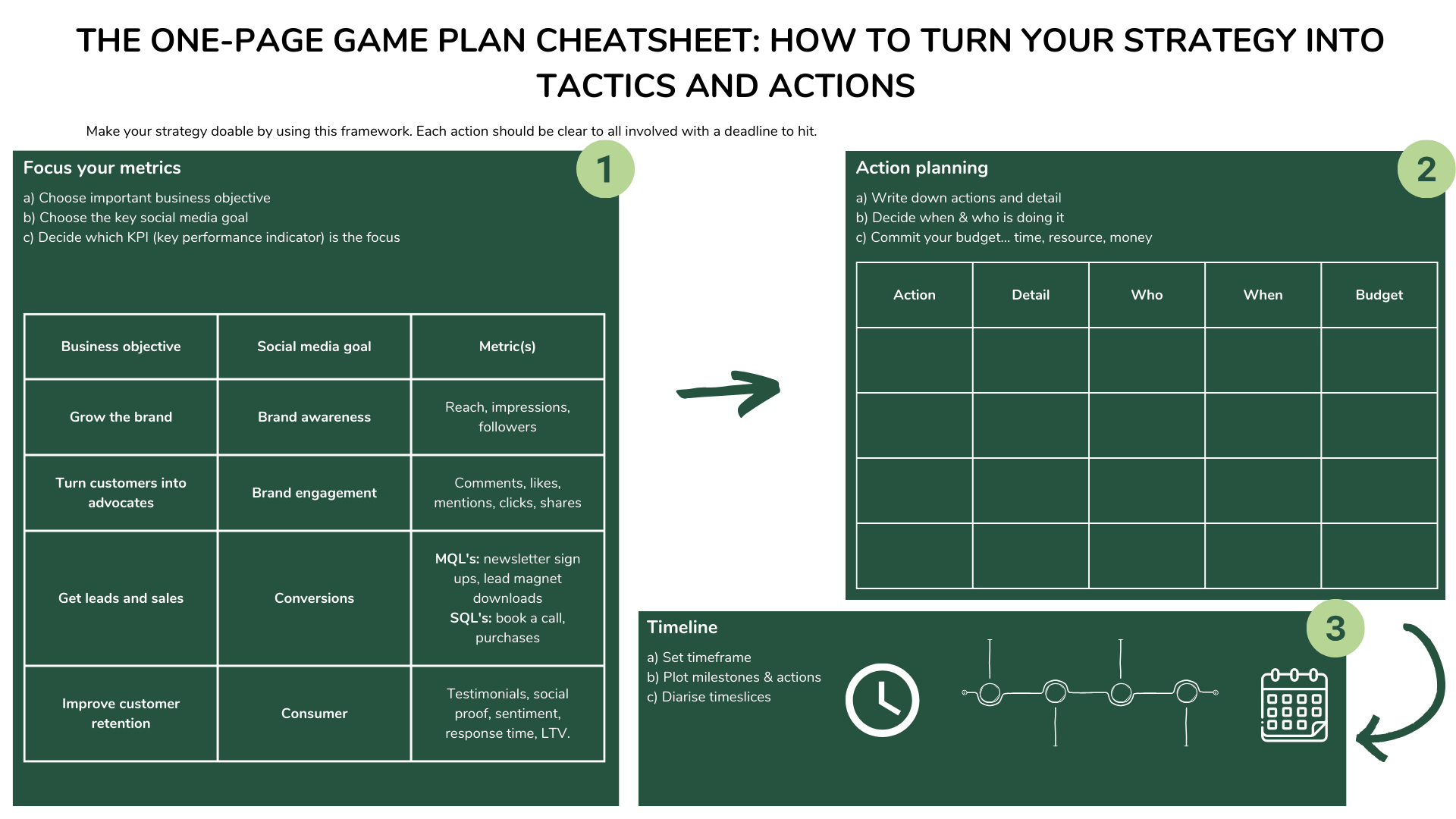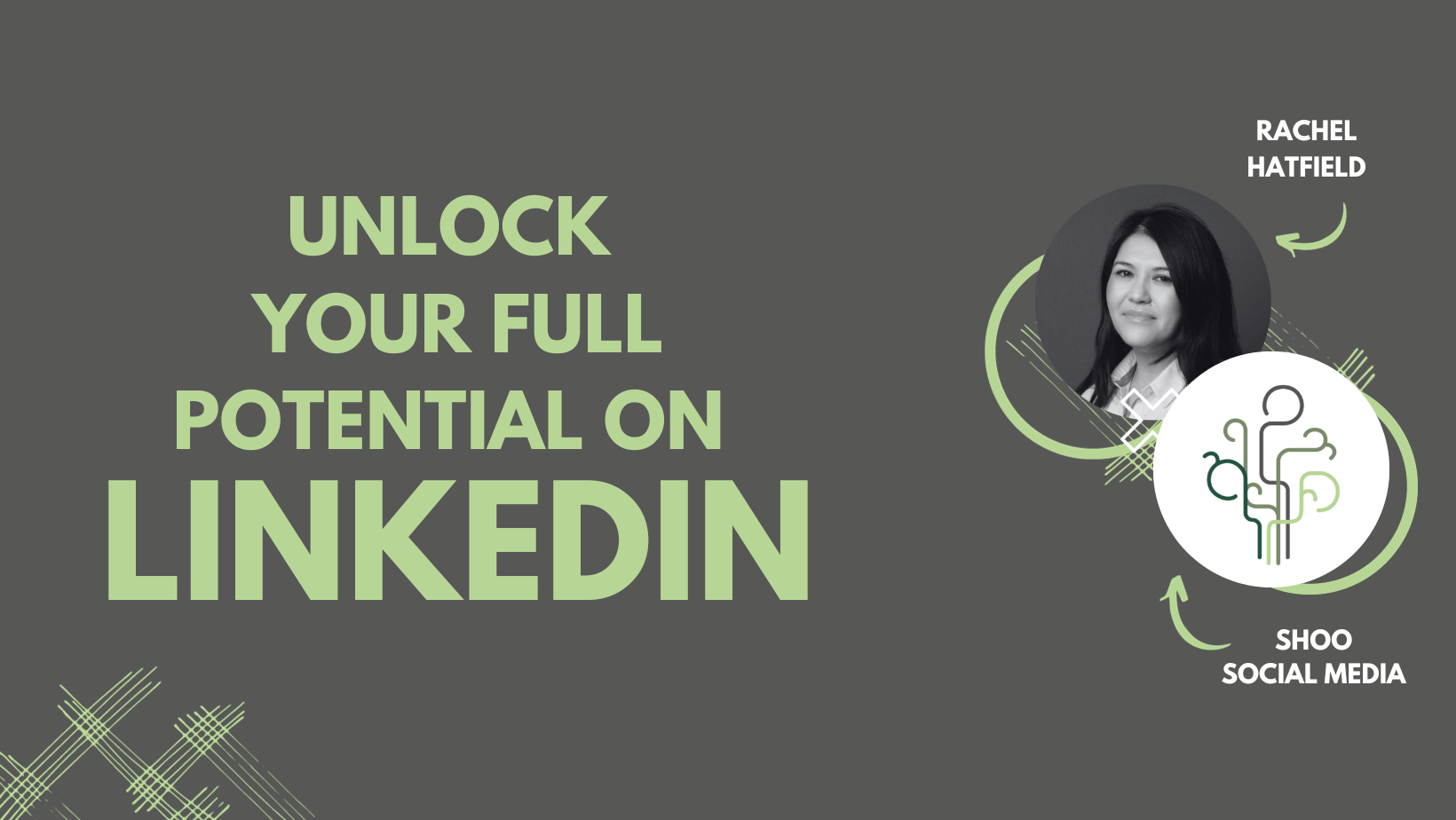ChatGPT: the game changer for social media marketing success
Importance of social media marketing in today's digital landscape
In today's digital era, social media marketing has become an indispensable tool for businesses to connect with their target audience, build brand awareness, and drive engagement. With billions of active users on various social media platforms, businesses have the opportunity to reach a wide and diverse audience like never before. Social media marketing enables businesses to create meaningful interactions, establish brand credibility, and generate customer loyalty.
Overview of ChatGPT and its potential in revolutionising social media marketing
ChatGPT, powered by advanced natural language processing (NLP) and artificial intelligence (AI) technologies, holds immense potential in revolutionising social media marketing strategies. ChatGPT is an AI language model developed by OpenAI that can understand and generate human-like text responses. Its ability to comprehend context, provide relevant information, and engage in interactive conversations makes it an invaluable tool for businesses looking to enhance their social media presence.
By leveraging ChatGPT's capabilities, businesses can create more personalised and engaging interactions with their social media audience. It offers the opportunity to deliver instant and tailored responses, automate certain marketing tasks, and generate creative content ideas. ChatGPT's language generation abilities empower businesses to optimise their social media marketing efforts, enhance customer experiences, and drive better results.
In the following sections, we will explore the various ways in which ChatGPT can be utilised for social media marketing, including engaging with customers, generating content ideas, and creating automated chatbots. We will delve into the benefits and best practices of incorporating ChatGPT into social media strategies, and discuss the exciting possibilities that lie ahead in the realm of AI-powered social media marketing.
Engaging with customers
Role of ChatGPT in providing real-time responses and personalised interactions
In the fast-paced world of social media, timely and personalised responses are crucial for businesses to capture and retain their audience's attention. ChatGPT plays a vital role in enabling businesses to provide real-time responses and engage in meaningful conversations with their customers. Its ability to understand natural language and generate human-like responses makes it an ideal tool for social media interactions.
With ChatGPT, businesses can address customer enquiries, provide product information, and offer support in a prompt and efficient manner. Whether it's answering frequently asked questions or resolving customer issues, ChatGPT can assist in delivering accurate and relevant information, enhancing the overall customer experience. By offering instant support and personalised interactions, businesses can build stronger connections with their social media audience and foster a sense of trust and satisfaction.
How ChatGPT can enhance customer engagement through social media platforms
Social media platforms provide businesses with a unique opportunity to connect with their target audience on a more personal level. ChatGPT can significantly enhance customer engagement on these platforms by facilitating interactive and dynamic conversations. It can generate responses that resonate with users, encouraging them to further engage with the brand.
By leveraging ChatGPT, businesses can initiate discussions, ask questions, and actively seek input from their social media followers. ChatGPT's language generation abilities can assist in crafting engaging and thought-provoking content that sparks conversations and encourages user participation. Additionally, ChatGPT can analyse user responses, identify patterns, and generate tailored follow-up questions or responses, creating a more personalised and interactive experience for users.
Through its conversational capabilities, ChatGPT can transform social media interactions from one-sided communication to meaningful conversations. This not only helps businesses build a loyal and engaged community but also provides valuable insights into customer preferences, opinions, and trends.
In the next sections, we will explore how ChatGPT can be utilised for generating content ideas and creating automated chatbots, further enhancing the impact of social media marketing strategies.
Content generation and ideas
Utilising ChatGPT for generating creative and relevant content ideas
One of the challenges faced by social media marketers is consistently coming up with fresh and engaging content ideas. This is where ChatGPT can be a game-changer. With its language generation capabilities, ChatGPT can assist marketers in generating creative and relevant content ideas that resonate with their target audience.
By providing ChatGPT with a brief or a specific topic, businesses can tap into its vast knowledge base and linguistic proficiency to receive a range of content suggestions. Whether it's brainstorming new blog topics, crafting catchy social media captions, or developing compelling ad copy, ChatGPT can offer valuable insights and suggestions to inspire marketers and fuel their content creation process.
Enhancing social media content strategies with ChatGPT's language generation capabilities
Social media platforms thrive on engaging and captivating content that stands out from the crowd. ChatGPT's language generation capabilities can be leveraged to enhance social media content strategies and make them more effective.
ChatGPT can assist in crafting attention-grabbing headlines, writing engaging social media posts, and even generating creative visuals or infographics. By incorporating ChatGPT into the content creation workflow, businesses can streamline their processes, save time, and maintain a consistent output of high-quality content.
Furthermore, ChatGPT's ability to analyse and understand the preferences and interests of the target audience can help in tailoring content to specific demographics or segments. By considering the language patterns and trends identified by ChatGPT, businesses can create content that resonates with their audience and increases the chances of engagement and virality.
In the next section, we will explore how ChatGPT can be employed in creating automated chatbots for social media, revolutionising customer interactions and support on these platforms.
Automated chatbots
Introduction to automated chatbots and their benefits in social media marketing
In today's fast-paced digital world, businesses are constantly seeking ways to provide instant support and seamless customer interactions. This is where automated chatbots come into play. Automated chatbots leverage artificial intelligence and natural language processing to deliver quick and efficient responses to customer queries, provide personalised recommendations, and even facilitate transactions.
When it comes to social media marketing, chatbots can be a powerful tool to enhance customer engagement, streamline communication, and drive conversions. By integrating chatbots into social media platforms, businesses can offer round-the-clock support, instantly respond to customer queries, and create interactive experiences that keep users engaged.
How ChatGPT can be trained to create intelligent and responsive chatbot experiences
ChatGPT, with its advanced language generation capabilities, can be trained to create intelligent and responsive chatbot experiences. By leveraging the large-scale language model's understanding of human language and its ability to generate coherent responses, businesses can develop chatbots that provide accurate and contextually relevant information to users.
Training ChatGPT to create chatbots involves feeding it with conversational datasets that include examples of user queries and corresponding responses. Through iterative training, fine-tuning, and reinforcement learning techniques, businesses can shape the chatbot's behaviour and ensure that it delivers meaningful and helpful interactions.
With ChatGPT-powered chatbots, businesses can engage with their social media audience in a conversational and interactive manner. These chatbots can handle a wide range of tasks, such as answering frequently asked questions, providing product recommendations, assisting with order tracking, and even offering personalised promotions or discounts.
The intelligent and responsive nature of ChatGPT-powered chatbots can leave a lasting impression on customers, creating a positive brand experience and loyalty.
In the next section, we will explore how ChatGPT's language processing capabilities can aid in sentiment analysis and social media monitoring, enabling businesses to gain valuable insights and refine their social media marketing strategies.
Customer support and feedback
Utilising ChatGPT to provide prompt customer support on social media platforms
In the realm of social media marketing, providing prompt and efficient customer support is crucial for maintaining a positive brand image. With ChatGPT, businesses can leverage its language processing capabilities to deliver instant and accurate customer support on social media platforms.
ChatGPT-powered chatbots can be integrated directly into social media channels, enabling businesses to respond to customer queries in real-time. Whether it's addressing product questions, resolving issues, or providing assistance, ChatGPT can understand the context of customer messages and deliver relevant and helpful responses.
By incorporating ChatGPT into their social media customer support strategy, businesses can ensure that customers receive timely assistance, enhancing their overall experience and satisfaction.
Gathering valuable feedback and insights through ChatGPT powered interactions
Beyond providing customer support, ChatGPT can also serve as a valuable tool for gathering feedback and insights from social media interactions. By engaging with customers through chatbot conversations, businesses can gather valuable information about their preferences, pain points, and suggestions.
ChatGPT's ability to generate natural and engaging conversations allows businesses to create surveys, polls, or feedback loops within the chatbot experience. This enables them to gather feedback directly from customers and gain insights into their needs and expectations.
Moreover, ChatGPT can assist in sentiment analysis, helping businesses understand the overall sentiment and opinions expressed by customers in social media interactions. This analysis can provide valuable information for refining marketing strategies, improving products or services, and tailoring social media campaigns to better resonate with the target audience.
By leveraging ChatGPT's language processing capabilities for customer support and feedback, businesses can not only enhance their social media marketing efforts but also build stronger relationships with their customers based on trust, responsiveness, and continuous improvement.
In the next section, we will delve into the power of ChatGPT in social media content creation, exploring how it can assist in generating compelling and engaging social media posts.
Influencer marketing and campaigns
Leveraging ChatGPT to identify potential influencers and optimise influencer marketing campaigns
In today's social media-driven landscape, influencer marketing has become a powerful strategy for brands to connect with their target audience. ChatGPT can play a vital role in identifying potential influencers and optimising influencer marketing campaigns.
ChatGPT's language processing capabilities can analyse vast amounts of social media data, allowing businesses to identify influencers who align with their brand values and have a significant impact on their target audience. By analysing factors such as engagement, reach, and relevance to the brand's niche, ChatGPT can help businesses identify the most suitable influencers for their marketing campaigns.
Furthermore, ChatGPT can assist in optimising influencer marketing campaigns by generating insights and recommendations. It can analyse past campaign performance, audience demographics, and influencer content to provide valuable suggestions on content strategies, campaign messaging, and audience targeting. This enables businesses to create more effective and impactful influencer collaborations.
How ChatGPT can assist in creating compelling social media campaigns
Crafting compelling social media campaigns is essential for capturing the attention and engagement of the target audience. ChatGPT's language generation abilities can assist businesses in creating captivating social media campaigns.
ChatGPT can generate creative and engaging content ideas for social media posts, including catchy captions, attention-grabbing headlines, and compelling storytelling. By inputting relevant keywords or themes, businesses can receive a wealth of content suggestions that align with their brand and resonate with their audience.
Moreover, ChatGPT can help businesses personalise their social media campaigns by tailoring content based on user preferences and behaviours. By analysing customer interactions, ChatGPT can generate personalised recommendations, offers, or incentives to drive engagement and conversions.
Additionally, ChatGPT can contribute to the creation of interactive and immersive social media experiences. From interactive quizzes to conversational games, businesses can leverage ChatGPT's capabilities to enhance user engagement and create memorable brand experiences.
By incorporating ChatGPT into influencer marketing and social media campaigns, businesses can harness the power of AI to optimise their strategies, generate compelling content, and create meaningful connections with their target audience.
In the next section, we will explore how ChatGPT can assist in social media analytics, providing businesses with valuable insights to measure the effectiveness of their social media marketing efforts.
Analytics and performance tracking
Utilising data generated by ChatGPT to analyse social media performance
Data plays a crucial role in measuring the success of social media marketing efforts. With ChatGPT's involvement in social media interactions, businesses can leverage the data generated by ChatGPT to gain valuable insights and analyse their social media performance.
ChatGPT can capture and analyse a wide range of data points, including customer interactions, response times, sentiment analysis, and engagement metrics. This wealth of information can provide businesses with a comprehensive understanding of how their audience engages with their social media content and how ChatGPT contributes to overall performance.
By examining customer conversations and feedback, businesses can identify patterns, trends, and preferences. This knowledge helps them refine their social media strategies, create more relevant content, and tailor their offerings to meet customer expectations.
Measuring the impact of ChatGPT powered social media marketing strategies
Measuring the impact of social media marketing strategies is crucial for determining the return on investment (ROI) and making informed decisions. With ChatGPT's integration, businesses can assess the effectiveness of their ChatGPT-powered social media marketing strategies.
By comparing key performance indicators (KPIs) before and after implementing ChatGPT, businesses can evaluate the impact of ChatGPT on metrics such as engagement rates, click-through rates, conversion rates, and customer satisfaction. This analysis provides a clear understanding of the value that ChatGPT brings to social media marketing efforts.
Furthermore, ChatGPT's data analytics capabilities enable businesses to segment their audience and track the performance of different campaigns or content variations. By measuring the performance of ChatGPT-generated content against other marketing initiatives, businesses can gain insights into the specific impact of ChatGPT on social media outcomes.
Additionally, businesses can use ChatGPT's data to refine their target audience personas, optimise their content strategies, and identify areas for improvement. This iterative approach allows them to continuously enhance their social media marketing efforts and achieve better results over time.
By utilising the analytics and performance tracking capabilities of ChatGPT, businesses can make data-driven decisions, optimise their social media strategies, and maximise the effectiveness of their ChatGPT-powered social media marketing initiatives.
In the next section, we will explore best practices for implementing ChatGPT in social media marketing and provide actionable insights for businesses to leverage its potential effectively.
Ethical considerations
Addressing ethical concerns in using AI powered tools like ChatGPT for social media marketing
As businesses embrace AI-powered tools like ChatGPT for social media marketing, it is essential to address the ethical implications that arise with their use. Ethical considerations play a vital role in ensuring responsible and sustainable practices in AI-driven social media interactions.
One of the primary concerns is the potential for biased or discriminatory outcomes in AI-generated content or responses. ChatGPT learns from vast amounts of data, which can inadvertently perpetuate biases present in the training data. To address this, businesses should carefully curate and review the training data to minimise bias and ensure fairness in the responses generated by ChatGPT.
Transparency is another critical aspect of ethical AI usage. Businesses should clearly communicate to their audience when they are interacting with an AI-powered system like ChatGPT. This transparency helps manage expectations and ensures that users understand the nature of the interactions they are having.
Ensuring transparency and responsible practices in AI driven social media interactions
Responsible AI practices involve being transparent about the limitations of AI systems and setting appropriate expectations. ChatGPT, while powerful and capable, is not a substitute for human intelligence and understanding. It is crucial to make it clear to users that they are engaging with an AI-powered chatbot, providing them with the necessary context to set realistic expectations.
Additionally, businesses should actively monitor and moderate the interactions facilitated by ChatGPT. Regular quality checks and human oversight are essential to ensure that the content generated aligns with ethical guidelines and brand values. This helps mitigate the risk of inappropriate or harmful responses being shared on social media platforms.
Moreover, it is important to prioritise user privacy and data protection. Businesses should handle user data in accordance with relevant regulations and industry best practices. Clear privacy policies and consent mechanisms should be in place to protect user information and ensure that data collected through ChatGPT-powered interactions is used responsibly.
By addressing ethical concerns and implementing responsible practices, businesses can harness the power of ChatGPT for social media marketing while maintaining trust and integrity in their interactions with customers.
In the final section of this blog, we will summarise the key points discussed and provide actionable recommendations for leveraging ChatGPT effectively in social media marketing campaigns.
Best practices for implementing ChatGPT in social media marketing
Considerations for selecting the right platform and tools for ChatGPT integration
Implementing ChatGPT effectively in social media marketing requires careful consideration of the platform and tools used for integration. Here are some key considerations to keep in mind:
- Compatibility: ensure that the platform or social media management tool you choose supports integration with ChatGPT. Check for compatibility with the programming languages and APIs required for seamless integration.
- Scalability: consider the scalability of the platform and tools to accommodate the potential volume of interactions and the growth of your social media presence. You want a solution that can handle increasing demands without compromising performance.
- Customisation options: look for platforms and tools that offer customisation options. This allows you to tailor ChatGPT's responses and interactions to align with your brand's tone, voice, and specific social media marketing objectives.
Training and fine tuning ChatGPT for optimal performance in social media marketing
To achieve optimal performance and maximise the benefits of ChatGPT in social media marketing, it is crucial to invest time and effort in training and fine-tuning the model. Here are some best practices to follow:
- Data preparation: gather a diverse and representative dataset to train ChatGPT. Include examples of different types of social media interactions, customer queries, and relevant content. Clean and preprocess the data to remove any noise or biases that could impact the model's performance.
- Fine tuning: utilise fine tuning techniques to customise ChatGPT for your specific social media marketing needs. Fine tuning allows you to narrow down the model's focus and align it with the specific domain or industry you operate in.
- Iterative improvement: continuously monitor and evaluate the performance of ChatGPT in social media interactions. Collect feedback from users and use it to identify areas for improvement. Regularly update and refine the model based on real-world feedback to enhance its accuracy and relevance.
By carefully selecting the right platform and tools for ChatGPT integration and investing in proper training and fine-tuning, businesses can harness the full potential of ChatGPT in social media marketing, driving engagement, customer satisfaction, and business growth.
In the concluding section of this blog, we will recap the key points discussed and emphasise the transformative impact of ChatGPT on social media marketing strategies.
Recap of the benefits of using ChatGPT for social media marketing
Throughout this blog post, we have explored the numerous benefits that ChatGPT brings to social media marketing. Let's recap some of the key advantages:
- Enhanced customer engagement: ChatGPT enables businesses to provide real time responses and personalised interactions, fostering meaningful engagement with their audience on social media platforms.
- Content generation and ideas: by leveraging ChatGPT's language generation capabilities, businesses can generate creative and relevant content ideas, strengthening their social media content strategies.
- Automated chatbots: implementing ChatGPT as an automated chatbot opens up new avenues for efficient customer support, ensuring prompt responses and freeing up human resources for more complex tasks.
- Customer support and feedback: ChatGPT empowers businesses to deliver prompt customer support on social media platforms, creating positive customer experiences. Additionally, it enables the collection of valuable feedback and insights through interactive conversations.
- Influencer marketing and campaigns: ChatGPT can assist businesses in identifying potential influencers and optimising influencer marketing campaigns, amplifying their social media reach and impact.
- Analytics and performance tracking: leveraging the data generated by ChatGPT interactions allows businesses to analyse their social media performance and measure the effectiveness of their ChatGPT-powered strategies.
Encouragement for businesses to explore the potential of ChatGPT in their social media strategies
As the digital landscape continues to evolve, businesses must stay ahead of the curve in their social media marketing efforts. ChatGPT presents an exciting opportunity to revolutionise social media strategies, enabling businesses to connect with their audience in more meaningful and efficient ways.
By leveraging ChatGPT's capabilities, businesses can unlock new levels of customer engagement, streamline content generation, enhance customer support, and gain valuable insights into their social media performance.
The future of social media marketing with AI powered solutions like ChatGPT
AI-powered solutions like ChatGPT represent the future of social media marketing. As technology advances and AI models become more sophisticated, we can expect even greater integration and seamless interactions between businesses and their customers on social media platforms.
It is an exciting time for businesses to embrace the potential of ChatGPT and other AI driven tools to shape the future of social media marketing. By leveraging these technologies, businesses can create compelling social media experiences, build stronger customer relationships, and drive business growth.
Incorporating ChatGPT into your social media marketing strategy is a step towards staying competitive and delivering exceptional experiences to your audience. The possibilities are endless, and it's time to explore the transformative potential of ChatGPT in your social media marketing initiatives.
We hope this blog post has inspired you to take the leap and embrace the power of ChatGPT in your social media marketing efforts. Get ready to redefine the way you engage with your audience, generate content, and elevate your brand's presence in the ever evolving world of social media marketing.








Sign up to our newsletter for the latest insider insights, top advice and more.
We will get back to you as soon as possible
Please try again later

Shoo Social Media
137 Bolling Road
Ben Rhydding
Ilkley Leeds
LS29 8PN
01943 430245
Info@shoosocialmedia.co.uk

